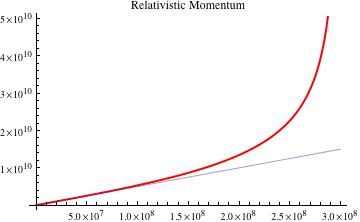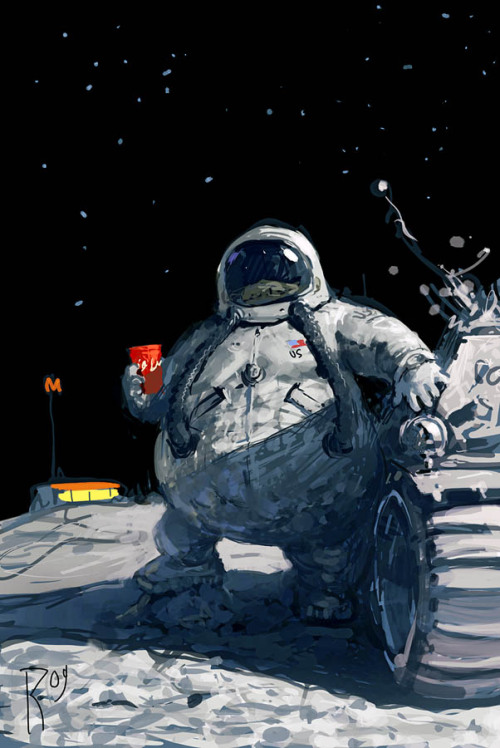Not that the year was all terrible for me. Me, personally, I'd say I just marked time through it all. That in and of itself is kind of terrible. For others, it really was a bad, tough year.
I honestly don't know if 2011 could have been better particle-ized. Perhaps, in some other universe, in some Everett many-worlds multiverse, it all particle-ized quite well.
(But keep in mind that the true interpretation of Everett's quantum choices is not you making choices and splitting the universe up. It's not like a version of Nick the Bartender in "It's a Wonderful Life" handing out angel's wings with a cash register bell. It's not like Sheldon Leonard is flipping a coin saying "Dig Me! I'm creatin' univoises!" It may sound pedantic, but the universe is all that is, all matter, all energy, all spaces and times. It is merely a contemporary cultural conceit that we refer to multiverses. If the Everett interpretation of quantum mechanics is correct, then all that happens when you make choice is that you get split into different versions of you. But no new universes are created. You just aren't that fucking important. Get over yourself).
Speaking of different regions of space and time beyond our apprehension, we really need to address the idea of just the one Big Bang. We, in our conceit, assume that we see is all there is. When, in fact, most cosmologists would say that the universe is much, much bigger than just the 13.7 billion light year radius of stuff around us that we see. Some say the universe is infinite in size, others put it at 150 billion light years.
 |
| What's wrong with this picture? |
Don't how they come up with that number. I suspect the number is based upon cosmic microwave background data. Also on the principle of mediocrity, that conditions we enjoy are the same everywhere. Again, I consider that principle a kind conceit, making the assumption that there aren't strange and bizarre corners of the universe that play by different rules. And include in that conceit the idea that there was only the one Bang.
But it could be that our observable universe is only a recent thing, just a baby thing, just an effervescent pocket of new shit. There may be parts much, much older than we what we see.
In a previous essay, I calculated that, just using natural processes and some astonishingly good luck, that bacteria from Earth could travel to a potential new planetary home circling our nearest star in a mere few tens of thousands of years. 31,461 years to be exact. And, assuming some astoundingly amazing luck, the whole galaxy could have been colonized with Earth life. The chances are exceedingly remote, nigh on impossible, but not quite. And that's assuming a mere 3.5 billion years of known life, with random events and trajectories through natural accident.
More purposeful travels, which is to say artificial means such von Neumann self-replicating space probes traveling at some fraction of the speed of light, containing a software blueprint of life and the means to synthesize biology upon arrival (all reasonable and doable assumptions given even our present state of primitive technologies) puts the time frame for full galactic colonization at a paltry two million years.
In fact, all the data, and all our logic, suggest that we are not unique, we should not not be alone. Life should be every fucking where. And yet we have no evidence for it. The Fermi Paradox.
What about other places? What's the absolute best-case scenario? Well, we will use the Milky Way galaxy, as all the astronomical evidence suggests this galaxy formed early on at the beginning of the universe. So, some structures of the galaxy as old as the universe, 13.7 billion years. Other parts, like the halo of old, tired stars, the supermassive black hole at the center, and cold dark nebulae, are slightly younger, but not by much. If we grant some very fortunate circumstances, and assume (because we have no other example) that life is defined as our kind of life (carbon-based, aqueously mediated, planetary bounded), then it works out like this:
 |
| image courtesy Indiana U |
Big Bang. Inflation. Expansion. Particle creation and nuclear fusion.
75% hydrogen, 24.99% helium. Trace of lithium.
First stars with this composition, hundreds of times the mass of the sun, get started some 100,000 years later, live hard, die fast, churn out metals (astronomical metals - anything heavier than hydrogen and helium).
Surrounding space is filled up with gas and dust with the ingredients for life, namely hydrogen, oxygen, carbon, nitrogen, sulfur for starters. If you want RNA or DNA, throw in phosphorous. If you want life that doesn't have to worry about hard radiation, throw in iron, for an iron core for an electromagnetic shield around the planet.
The first generation of stars are hazardous to life. The second generation of stars, made from the stuff spewed out by the first, might have planetary bodies around them, but do not have sufficient heavier elements for life. Third generation of stars includes our sun, start popping up around nine to 5 billion years ago. So, the earliest life goes back two to three billion years before Earth life got its start. So goes the conventional narrative.
But we are talking about best case scenario. It is possible for a star forming region to concentrate all the stuff you need for a sunlike system with earthlike planets with sufficient heavy metals as early as twelve billion years ago. So, some eight billion years before us, or twice the lifetime of life on Earth.
And that's the best case for the observable universe. But as I said, this could be new pocket. There could be parts of our universe that vastly older, or even parts that are no longer around, or have undergone a Big Crunch, or even more horrifying a Big Runaway in which accelerating expansion rips apart everything into a cold thin soup of nothingness.
So, want a tragedy? Ninety trillion years ago, a far distant part of the universe erupted in a big bang. It developed fast, much faster than out in our neck of the woods. And in the short span of just a few million years, there was a stellar splendor. And life developed. It grew complex. Then intelligent. Then technological. And this smart capable life looked around its observable part of the universe, and recognized that it was expanding. And to this life's horror, the expansion was accelerating. So much so that soon everything would be cold thin soup. And life set about trying counter this. But life couldn't do it. There wasn't enough mass and energy available, even if they gathered all they could see together in one spot, there own Big Crunch. Not that they didn't try. But they realized that even black holes would evaporate against the coming runaway inflation.
 |
| How They Did It |
Instead, they leapt beyond the confines of their prison, into the larger universe, and there they found a new beginning. And though they were fruitful and multiplied, they were still mad and scarred from their harrowing past, and determined never, ever to let it happen again. And any life they found was raw materials to them, or, if lucky, cannon fodder.
They are out there. But it's best if they don't know about you.
So, shhh! Keep quiet!






















